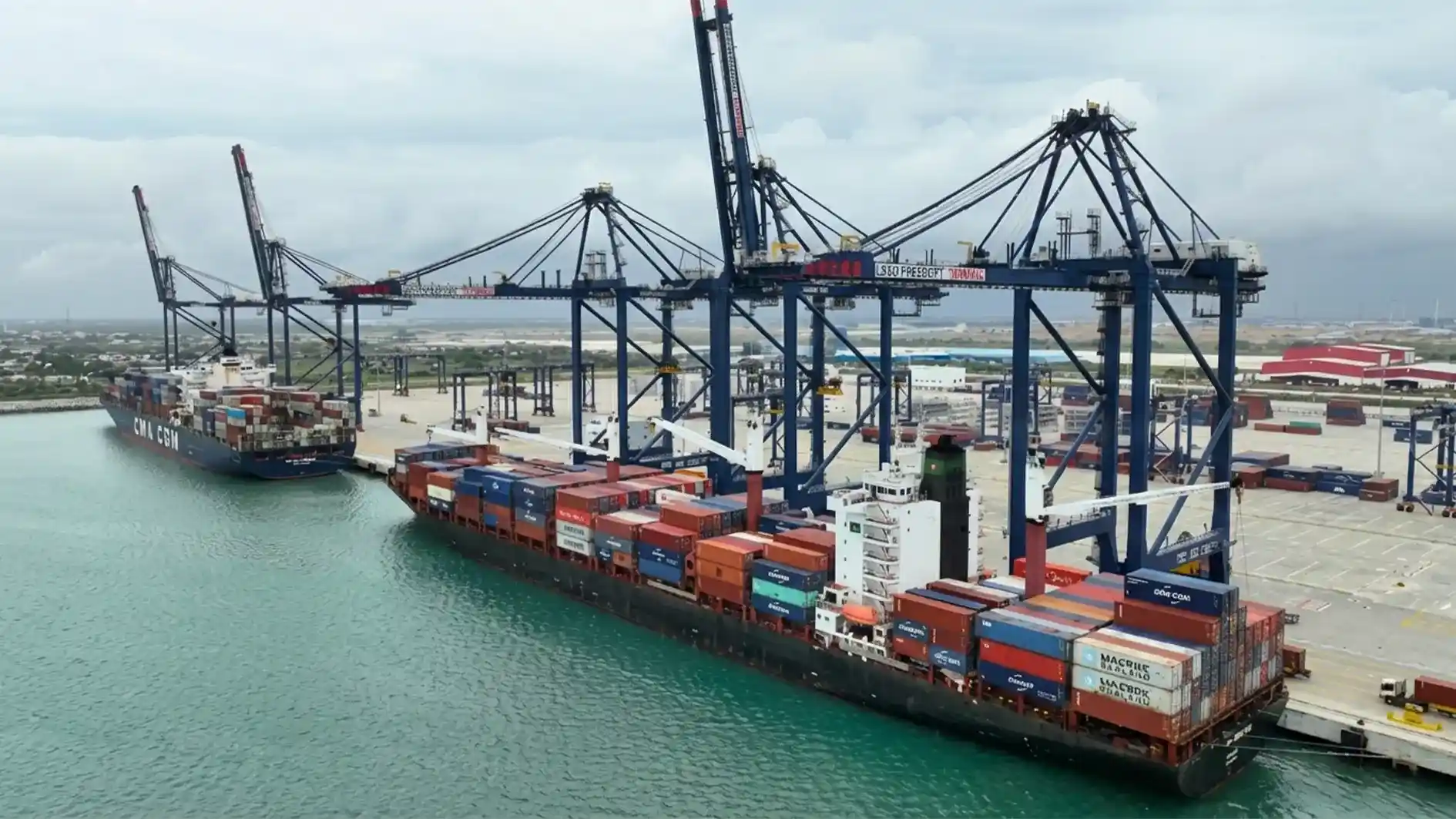After the dramatic collapse of CBEX—a trading platform that left thousands of Kenyans unable to withdraw their funds—the Capital Markets Authority (CMA) has stepped in to remind investors of the only online forex brokers, market‑making dealers, and portfolio managers legally licensed to operate in Kenya. This comprehensive guide explores the CBEX fallout, profiles the various categories of licensed operators, offers practical verification and safety tips, and paints a broader picture of the country’s fast‑growing online‑forex ecosystem.
The CBEX collapse: A cautionary tale
In mid‑April, CBEX stunned Kenyan investors by suddenly freezing withdrawals and demanding hefty “verification fees” to release client funds. What began as promises of double‑digit monthly returns quickly turned into a nightmare for many. One retiree, who had invested his pension savings after seeing social‑media ads boasting “zero‑risk” profits, now finds himself scrambling to make ends meet. Students and young professionals, lured by referral bonuses and flashy user interfaces, have been reduced to frustration and despair.
These personal tragedies—videos of anguished investors lining up outside CBEX’s (now shuttered) Nairobi office, stories of emergency loans taken out to cover medical bills—underscore how unregulated platforms can exploit both financial naivety and the very real desire for economic uplift. For every triumphant tale of portfolio growth shared online, an equal number of losses remain buried in private grief.
CMA’s rapid response and investor alert
Within days of public outcry, the CMA issued an “Investor Alert,” urging Kenyans to engage only with firms it has licensed and regulated. The statement warned against platforms promising sky‑high returns without transparent risk disclosures, and urged investors to beware of heavy social‑media marketing, unverifiable contact details, and unsolicited investment advice.
In its announcement, the CMA categorized online forex operations into three distinct groups—no‑dealing brokers, dealing brokers (market makers), and forex money managers—each with its own regulatory requirements and risk profiles. By publicly listing the only firms authorized to operate, the CMA aimed both to contain panic and to restore confidence in Kenya’s broader financial‑services ecosystem.
Kenya’s online‑forex evolution: From curiosity to mainstream
A decade ago, online foreign‑exchange trading in Kenya was the preserve of a handful of specialist firms and a niche of savvy expatriates. Today, it has gone mainstream. Smartphone penetration exceeds 80 percent, data costs have plummeted, and integrations between brokers and mobile‑money services have made deposits and withdrawals frictionless.
Platforms now advertise in local languages and dialects, tout mobile‑app convenience, and even partner with telcos to offer zero‑rating on trading‑related data. Financial education—once confined to urban professional circles—has spread through community workshops and university clubs. Accordingly, retail forex traders in Kenya have nearly doubled over the past five years, broadening the investor base beyond corporate hedgers to everyday citizens seeking portfolio diversification.
No‑dealing brokers: Direct access to interbank liquidity
No‑dealing‑desk (NDD) brokers route client orders straight to international liquidity providers—major banks, hedge funds, and institutional counterparties—without taking the opposite side of a trade themselves. This model is prized for its price transparency, minimal re‑quoting, and tight spreads that closely reflect real‑time interbank rates.
Licensed no‑dealing brokers in Kenya
- EGM Securities Limited (operating as FX Pesa)
- SCFM Limited (operating as Scope Markets)
- Pepperstone Markets Kenya Limited
- Exinity Capital East Africa Limited
- HFM Investments Limited (operating as HF Markets)
- Windsor Markets Kenya Limited
- Exness KE Limited
- Ingot KE Limited
- Admirals KE Limited
- FP Markets Limited
- IC Markets (KE) Limited
- Trademax Global Markets (KE) Pty Limited
These firms typically offer seamless integration with local payment rails—especially mobile wallets—so that users can trade major and exotic currency pairs with minimal friction.
Dealing brokers: The market‑making model
Dealing brokers, or market makers, create internal liquidity pools and quote their own bid and ask prices. Rather than sending orders to an external market, they fill trades from funds they hold in reserve. This arrangement can guarantee fixed spreads and ultra‑fast execution, but it carries inherent conflicts of interest: the broker profits when a client loses.
Currently, Empire FX Trade Limited stands alone as Kenya’s only CMA‑licensed dealing broker. Traders who prefer predictable spreads or who execute high‑frequency strategies may find this model attractive—but must remain mindful of the counterparty risk embedded in every transaction.
Online forex money managers: Hands‑off portfolio stewardship
Distinct from brokers, online forex money managers are licensed professionals who trade on behalf of clients, crafting bespoke strategies aligned with each investor’s risk tolerance and financial goals. They operate under the Capital Markets (Online Forex Trading) Regulations, 2017, and typically charge fees based on a percentage of assets under management (AUM).
Licensed online forex money managers in Kenya
- Standard Investment Bank (trading as MANSA X)
- Store Poa Enterprise Limited
- Trade Sense Limited (currently serving a three‑month suspension from late February 2025)
Clients delegate the complexity of market analysis, trade execution, and risk management to seasoned experts—ideal for those who lack the time or expertise to trade directly, yet wish to participate in currency markets.
How to verify a firm’s regulatory status
In the wake of CBEX, due diligence has never been more critical. Prospective investors should follow a simple four‑step process:
- Consult the CMA’s published license register. Confirm that the firm’s name, registration number, and stated business activities match your prospective broker or manager.
- Verify physical presence. Licensed entities maintain office premises in Kenya; a site visit or a quick video call to the office reception can validate authenticity.
- Review official disclosures. Regulated firms provide risk‑disclosure statements, audited financials, and client‑segregated account structures. Ask for these documents if they are not readily available on request.
- Authenticate digital channels. Confirm that the broker’s website domain, social‑media pages, and email addresses are consistent with publicly registered details—scammers often clone logos and domains to deceive unsuspecting users.
By rigorously vetting each of these elements, investors can significantly reduce the risk of falling prey to unlicensed operators.
Red flags and best practices for traders
To navigate the fast‑paced forex arena safely, Kenyan investors should cultivate disciplined habits:
- Beware of “guaranteed” returns. Any promise of double‑digit monthly yields, or of risk‑free profits, should ring alarm bells—no legitimate trading strategy can eliminate market risk.
- Use demo accounts first. Trial a platform’s interface and execution quality without risking real capital.
- Limit leverage. High leverage amplifies both gains and losses; conservative settings (e.g., 1:10 or lower) help preserve capital.
- Diversify strategies. Don’t allocate more than 5–10 percent of your investable assets to speculative forex positions.
- Employ stop‑loss orders. Pre‑set exit points guard against runaway losses during volatile sessions.
- Stay informed. Keep an eye on central‑bank announcements, major economic data releases, and geopolitical events that can roil currency markets.
These simple disciplines can mean the difference between sustainable participation and catastrophic loss.
Regulatory reforms on the horizon
The CBEX debacle has accelerated legislative and policy work in Nairobi. Later this year, Parliament is expected to pass the Virtual Assets Service Providers Bill, which will clearly delineate the roles of the Central Bank of Kenya—overseeing payment providers and currency exchanges—and the CMA—supervising trading, exchanges, and initial offerings of digital assets.
Furthermore, the CMA has expanded its fintech sandbox, inviting startups to trial blockchain‑based settlement solutions, tokenized securities, and algorithmic‑trading platforms under close supervisory oversight. Draft Margin Trading Regulations, released in early 2024, also foreshadow a more sophisticated landscape in which qualified investors may access margin facilities subject to strict capital‑adequacy rules.
Together, these reforms aim to strike the right balance between encouraging innovation and safeguarding retail investors.
Looking ahead: Growth, inclusion, and investor protection
Kenya’s online‑forex market shows no signs of slowing. Industry observers project that daily retail turnover may surpass USD 70 million by 2026, driven by the continued rise of instant payments, the expansion of pay‑later schemes, and growing demand for foreign‑exchange hedging among small and medium‑size enterprises.
Yet the central pillar of this growth must remain investor protection. Financial‑literacy campaigns—already underway in universities, community centers, and digital‑education platforms—must intensify. Collaborative enforcement, spanning cross‑border investigations and asset‑freezing powers, will be essential to deter illicit operators.
Above all, trust will be the currency that enables Kenya’s forex sector to flourish sustainably. By choosing licensed partners, adhering to prudent trading practices, and advocating for transparent regulation, investors can turn today’s painful lessons into tomorrow’s resilient financial ecosystem.
Ready to take your career to the next level? Join our dynamic courses: ACCA, HESI A2, ATI TEAS 7 , HESI EXIT , NCLEX – RN and NCLEX – PN, Financial Literacy!🌟 Dive into a world of opportunities and empower yourself for success. Explore more at Serrari Ed and start your exciting journey today! ✨
photo source: Google
By: Montel Kamau
Serrari Financial Analyst
17th April, 2025
Article, Financial and News Disclaimer
The Value of a Financial Advisor
While this article offers valuable insights, it is essential to recognize that personal finance can be highly complex and unique to each individual. A financial advisor provides professional expertise and personalized guidance to help you make well-informed decisions tailored to your specific circumstances and goals.
Beyond offering knowledge, a financial advisor serves as a trusted partner to help you stay disciplined, avoid common pitfalls, and remain focused on your long-term objectives. Their perspective and experience can complement your own efforts, enhancing your financial well-being and ensuring a more confident approach to managing your finances.
Disclaimer: This article is for informational purposes only and does not constitute financial advice. Readers are encouraged to consult a licensed financial advisor to obtain guidance specific to their financial situation.
Article and News Disclaimer
The information provided on www.serrarigroup.com is for general informational purposes only. While we strive to keep the information up to date and accurate, we make no representations or warranties of any kind, express or implied, about the completeness, accuracy, reliability, suitability, or availability with respect to the website or the information, products, services, or related graphics contained on the website for any purpose. Any reliance you place on such information is therefore strictly at your own risk.
www.serrarigroup.com is not responsible for any errors or omissions, or for the results obtained from the use of this information. All information on the website is provided on an as-is basis, with no guarantee of completeness, accuracy, timeliness, or of the results obtained from the use of this information, and without warranty of any kind, express or implied, including but not limited to warranties of performance, merchantability, and fitness for a particular purpose.
In no event will www.serrarigroup.com be liable to you or anyone else for any decision made or action taken in reliance on the information provided on the website or for any consequential, special, or similar damages, even if advised of the possibility of such damages.
The articles, news, and information presented on www.serrarigroup.com reflect the opinions of the respective authors and contributors and do not necessarily represent the views of the website or its management. Any views or opinions expressed are solely those of the individual authors and do not represent the website's views or opinions as a whole.
The content on www.serrarigroup.com may include links to external websites, which are provided for convenience and informational purposes only. We have no control over the nature, content, and availability of those sites. The inclusion of any links does not necessarily imply a recommendation or endorsement of the views expressed within them.
Every effort is made to keep the website up and running smoothly. However, www.serrarigroup.com takes no responsibility for, and will not be liable for, the website being temporarily unavailable due to technical issues beyond our control.
Please note that laws, regulations, and information can change rapidly, and we advise you to conduct further research and seek professional advice when necessary.
By using www.serrarigroup.com, you agree to this disclaimer and its terms. If you do not agree with this disclaimer, please do not use the website.
www.serrarigroup.com, reserves the right to update, modify, or remove any part of this disclaimer without prior notice. It is your responsibility to review this disclaimer periodically for changes.
Serrari Group 2025
















